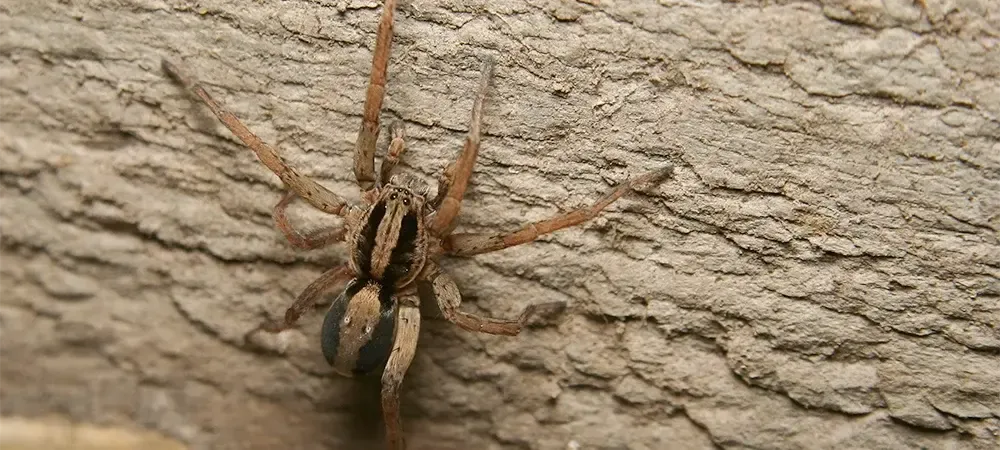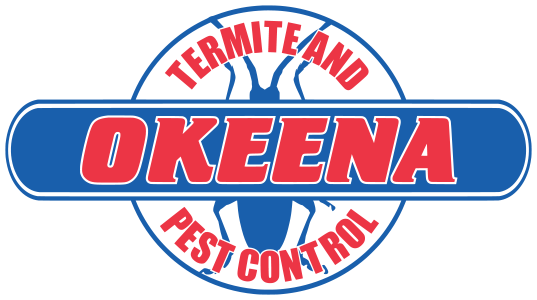Tennessee Wolf Spiders: What You Need To Know

Wolf spiders are among the most commonly encountered spiders in Tennessee. Their large size, quick movements, and nocturnal hunting habits make them noticeable to homeowners, especially in late summer and early fall. While their appearance can be intimidating, understanding who they are, how they behave, and how to prevent them can help you handle encounters more confidently and safely.
What Are Wolf Spiders?
Wolf spiders belong to the family Lycosidae, a group of ground-hunting spiders that do not build webs to catch prey. Instead, they actively search for insects and other small arthropods, relying on excellent vision and speed to capture food.
These spiders are typically medium to large in size, with body lengths ranging from about ½ inch to about 2 inches, and often appear dark brown or gray with mottled or striped patterns. Their robust, hairy bodies and stout legs give them a substantial presence.
One species commonly found in the region is the Carolina wolf spider (Hogna carolinensis), noted for its size and adaptive behaviors.
How Wolf Spiders Hunt
Unlike web-building species, wolf spiders rely on their vision and speed to stalk and pounce on prey — behavior that resembles hunting more than trapping. They are most active at night and are often seen in areas with plenty of insect activity, such as gardens, wood edges, and yards with rich vegetation.
Wolf spiders are largely ground dwellers, but they may wander indoors when searching for food or shelter.
Are Wolf Spiders Poisonous?
Despite their intimidating size and appearance, wolf spiders are not highly dangerous to humans. They do have venom, which is effective against their prey, but it is not potent enough to cause serious harm in most people. Most bites occur only if the spider feels trapped or is handled roughly.
Typical reactions from a wolf spider bite can include:
- Localized pain or mild burning sensation
- Redness and swelling around the bite site
- Minor itching or irritation
These symptoms usually resolve on their own within a few days. Seek medical attention if symptoms worsen or if you experience signs of an allergic reaction.
Where Wolf Spiders Live
Wolf spiders are adaptable and can be found in a variety of habitats:
Outdoors:
- Lawns and gardens
- Woodpiles and debris
- Leaf litter and ground cover
- Burrows and soil crevices
Around Homes:
- Garages and basements
- Sheds and crawl spaces
- Along foundation edges and outdoor lighting areas
They may enter homes inadvertently while pursuing prey or seeking shelter from weather changes, especially during seasonal transitions.
How to Tell Wolf Spiders Apart From Other Spiders
Many Tennessee homeowners mistakenly identify wolf spiders as other species due to their size and coloration. Here’s how they differ:
Wolf spiders vs. Brown Recluse:
- Wolf spiders are larger and hairier.
- Brown recluses have a distinctive violin-shaped marking on their cephalothorax.
- Wolf spiders have eight eyes in three rows, while recluses have six eyes.
Wolf spiders vs. Orb or Garden spiders:
- Orb and garden spiders build visible webs — wolf spiders do not.
These distinctions help reduce misidentification and unnecessary concern.
How to Prevent Wolf Spider Sightings and Infestations
Wolf spiders are drawn by their food sources and places to hide. Reducing these attractants is the most effective way to lower their presence near your home.
- Remove Outdoor Clutter: Clear wood piles, leaf litter, and debris near foundations where spiders and their prey might hide.
- Seal Entry Points: Inspect and seal gaps around windows, doors, foundation cracks, and utility penetrations to limit indoor access.
- Adjust Lighting: Exterior lights attract insects, which in turn attract spiders. Switching to yellow-tinted bulbs or reducing unnecessary lighting can help.
- Control Moisture: Moist areas draw insects and spiders alike. Fix leaky hoses, ensure proper drainage, and consider dehumidifiers in basements.
- Maintain Indoor Cleanliness: Vacuum and dust regularly — especially in corners, storage areas, and under furniture where spiders may hide.
For Complete Pest Control Solutions, Contact Okeena Pest Control
Okeena Termite and Pest Control is a professional company with over years of experience handling all kinds of pest issues, including wolf spiders. Wolf spiders are one of the most common spiders found in Tennessee and can be difficult to get rid of. Our experienced technicians have over years of experience in dealing with wolf spiders and can provide complete pest control solutions to keep your Tennessee home free of these pests. Contact us today to get started!

